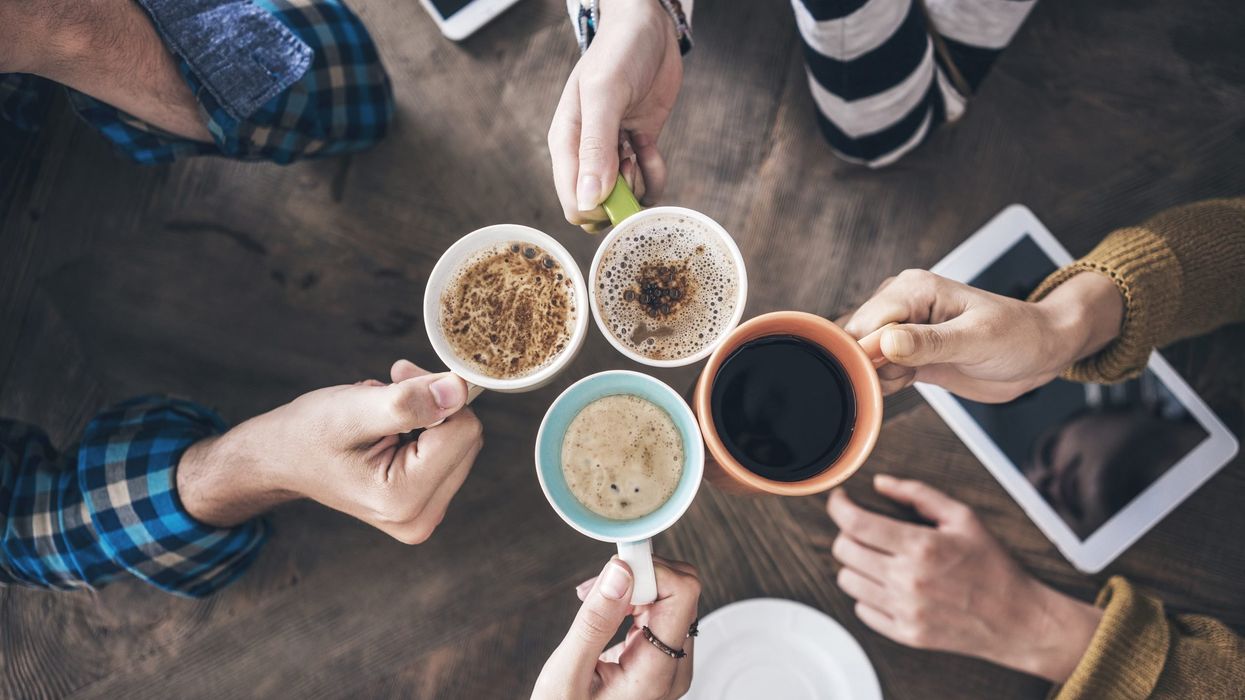Two or more cups of coffee per day may double the risk of death from cardiovascular disease in people with severe high blood pressure (160/100 mm Hg or higher), but not in those with high blood pressure, according to new research.
The findings of the study were published in the Journal of the American Heart Association, an open-access, peer-reviewed journal of the American Heart Association. However, despite the fact that both beverages contain caffeine, the study indicated that drinking one cup of coffee or one cup of green tea every day did not raise the risk of dying from cardiovascular disease at any blood pressure measurement. The FDA estimates that a cup of green or black tea contains 30 to 50 milligrams of caffeine, whereas a cup of coffee contains more like 80 to 100 mg.
Previous research found that drinking one cup of coffee a day may help heart attack survivors by lowering their risk of death after a heart attack and may prevent heart attacks or strokes in healthy individuals. In addition, separate studies have suggested drinking coffee regularly may reduce the risk of developing chronic illnesses, such as Type 2 diabetes and some cancers; may help to control appetite; may help to lower the risk of depression or boost alertness, though it is not clear if this effect is from the caffeine or something else in coffee. On the harmful side, too much coffee may raise blood pressure and lead to anxiety, heart palpitations and difficulty sleeping.
"Our study aimed to determine whether the known protective effect of coffee also applies to individuals with different degrees of hypertension; and also examined the effects of green tea in the same population," explained the study's senior author Hiroyasu Iso, M.D., PhD, M.P.H., director of the Institute for Global Health Policy Research, Bureau of International Health Cooperation, National Center for Global Health and Medicine in Tokyo, Japan, and professor emeritus at Osaka University. "To the best of our knowledge, this is the first study to find an association between drinking 2 or more cups of coffee daily and cardiovascular disease mortality among people with severe hypertension."
High blood pressure, also known as hypertension, occurs when the force of blood pushing against the walls of blood vessels is consistently too high, making the heart work harder to pump blood. It is measured in millimetres of mercury (mm Hg). The current blood pressure guidelines from the American Heart Association and the American College of Cardiology classify hypertension as a blood pressure reading of 130/80 mm Hg or higher.
The blood pressure criteria for this study are slightly different from the ACC/AHA guidelines. Researchers classified blood pressure into five categories: optimal and normal (less than 130/85 mm Hg); high normal (130-139/85-89 mm Hg); grade 1 hypertension (140-159/90-99 mm Hg); grade 2 (160-179/100-109 mm Hg); and grade 3 (higher than 180/110 mm Hg). Blood pressure measures in grades 2 and 3 were considered severe hypertension in this study.
Study participants included more than 6,570 men and more than 12,000 women, ages 40 to 79 years at the start of the research. They were selected from the Japan Collaborative Cohort Study for Evaluation of Cancer Risk - a large, prospective study established between 1988 and 1990 of adults living in 45 Japanese communities. Participants provided data through health examinations and self-administered questionnaires assessing lifestyle, diet, and medical history.
During nearly 19 years of follow-up (through 2009), 842 cardiovascular-related deaths were documented. The analysis of data for all participants found:
1. Drinking two or more cups of coffee a day was associated with twice the risk of cardiovascular disease death in people whose blood pressure was 160/100 mm Hg or higher compared to those who did not drink any coffee.
2. Drinking one cup of coffee a day was not associated with an increased risk of death from cardiovascular disease across any blood pressure categories.
3. Green tea consumption was not associated with an increased risk of cardiovascular disease mortality across any blood pressure categories.
"These findings may support the assertion that people with severe high blood pressure should avoid drinking excessive coffee," said Iso. "Because people with severe hypertension are more susceptible to the effects of caffeine, caffeine's harmful effects may outweigh its protective effects and may increase the risk of death."
The study found that people with more frequent coffee consumption were more likely to be younger, current smokers, current drinkers, eat fewer vegetables, and have higher total cholesterol levels and lower systolic blood pressure (top number) regardless of the blood pressure category.
The benefits of green tea may be explained by the presence of polyphenols, which are micronutrients with healthy antioxidant and anti-inflammatory properties found in plants. The researchers noted that polyphenols may be part of the reason only coffee consumption was associated with an increased risk of death in people with severe high blood pressure despite both green tea and coffee containing caffeine.
The research has several limitations: coffee and tea consumption were self-reported; blood pressure was measured at a single point, which did not account for changes over time; and the observational nature of the study could not draw a direct cause-and-effect connection between coffee consumption and cardiovascular disease risk among people with severe high blood pressure.




